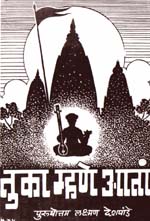
PL launched off his `dramatic' career by writing `Tuka Mhane Ata.' The play, according to PL, projected Sant Tukaram in `revolutionary' way, and was expected, again in his own words, `to make waves.' He, however, candidly admits that it was washed away in the torrential rains of November 1948, when the play was first staged at Pune. `Tuka Mhane Ata' flopped.
Nonetheless, a veritable treat of dramas and his one-man humorous shows was in store for the Marathi audience. `Tuka Mhane Ata' was followed by `Ammaldar' (script, acting), `Bhagyawan,' 'Mothe Mase, Chhote Mase,' `Aamhi Latike Na Boloo,' `Vitthal To Ala Ala,' `Tujhe Ahe Tujpashi,' `Sundar Mee Honar,' `Tee Phulrani' (adopted from George Bernard Shaw's Pygmalian), `Teen Paishacha Tamasha' (adopted from Brecht's `Three Penny Opera'), `Ek Jhunj Varyashi,' and two plays for children _ `Vayam Motham Khotam,' and `Nave Gokul.' As usual, PL had numerous roles to play, from writing, to direction, and acting too.
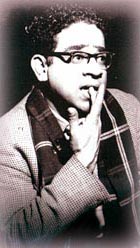
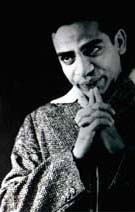
`Tujhe Ahe Tujpashi,' PL's independent play, is a landmark not only in his career as a dramatist but also in the history of Marathi theatre. It was hugely popular. It focuses on two diametrically opposite approaches to life, the inherent contradictions in human nature and the fun that such a situation creates. Comic to the minute, it also has two other special PL touches. His refusal to damn a point of view he is making fun of; and his seasoning of humour with compassion.
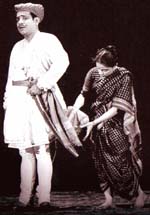
His wife Sunitabai, an accomplished personality herself, had formed a group `Anamika,' to stage the best of Marathi programmes. `Gadkari Darshan' was among the choicest stage-productions of the group. It was a tribute to the legendary poet and playwright, Ram Ganesh Gadkari. In the programme, the creative couple, supported by Sunitabai's sister Shalan Patil, brought alive various characters in Gadkari's plays like `Rajsanyas,' `Ekach Pyala,' `Punyaprabhav' and `Bhavbandhan.'
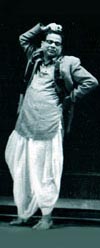
While PL's plays won him accolades, his one-man shows took him to the pinnacle of popularity, the kind which was unprecedented. `Batatyachi Chal' , based on his own book with the same title, was the first such stage presentation, under the banner of the Indian National Theatre. PL was doubtful about the success of such a performance. But the first show over, and what followed could be described only as a `roaring success.' `Batatyachi Chal,' depicting the daily life in a middle-class housing complex (called `chal' in Marathi), with all its hopes and despairs, inconsistencies and contradictions in the battle for survival, had the audience laughing and guffawing all the way. Celebrated writer Acharya Atre, another multi-faceted personality Maharashtra has seen, after watching `Batatyachi Chal,' responded with an editorial in his daily `Maratha,' showering immense praise on PL.
His other one-man show, `Asa Mee, Asa Mee,' showing the `bahurupi' PL, also ran to packed houses. Then came `Hasavinyacha Majha Dhanda,' which was in aid of a blood-donation project for Indian jawans.
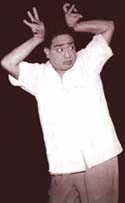
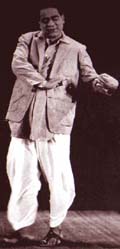
`Varyavarchi Varat' was, in PL 's words, complete with family and friends.The show again was great family entertainment. Music played a major part in it and so did one of PL's yet another great accomplishment - his harmonium playing. `Varyavarchi Varat' had us singing and yodelling. The `Ugeech ka kanta' sequence with `We are here' was repeated `n' times, the Ativishal Mahila Mandal episode was ever-popular. And the pun about a `tabalji' not being able to come up with a convincing `thap' was riproaring.
If `Batatyachi Chal' had Atre penning an editorial on it, `Varyavarchi Varat' had eminent cartoonist Bal Thackeray appreciating the show through specially drawn cartoons.
To the misfortune of the Marathi audience, PL stopped the shows of all these programmes even while they were in great demand.





 Return to Main
Return to Main